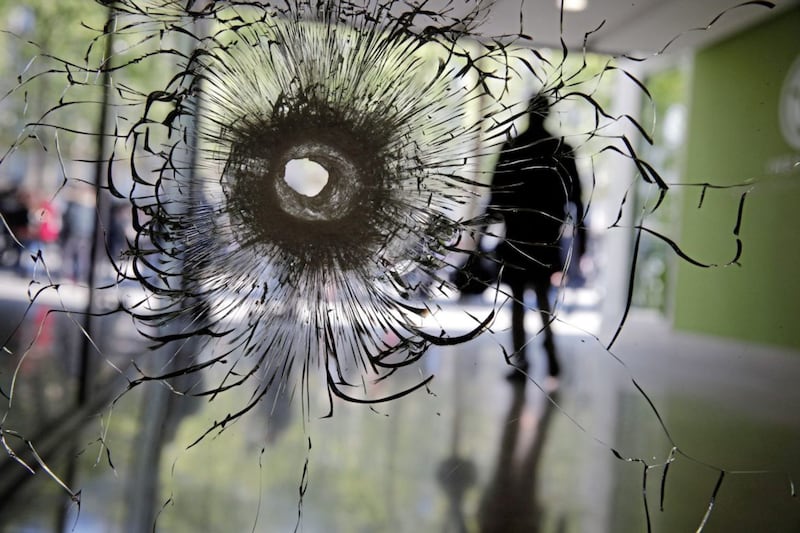The Champs-Elysees gunman who shot and killed a police officer just days before France's presidential election was detained in February for threatening police but later freed.
Investigators believe at this stage that the gunman, 39-year-old Frenchman Karim Cheurfi, was alone in killing a police officer and injuring two others and a German tourist in Paris on Thursday night, less than 72 hours before the polls open.
He was detained towards the end of February after speaking threateningly about police, but was then released due to a lack of evidence.
He was also convicted in 2003 of attempted murder in the shootings of two police officers.
The French government has pulled out all the stops to protect Sunday's vote as the attack deepened France's political divide.
"Nothing must hamper this democratic moment, essential for our country," Prime Minister Bernard Cazeneuve said after a top-level meeting on Friday that reviewed the government's already heightened security plans for the two-round vote that begins on Sunday.
"Barbarity and cowardice struck Paris last night," he said as he appealed for national unity and for people "not to succumb to fear".
Islamic State claimed responsibility for the attack unusually quickly in a statement that sowed confusion by apparently misidentifying the gunman.
Police shot and killed Cheurfi – identified from his fingerprints – after he opened fire on a police van on Paris' most famous boulevard. Investigators found a pump-action shotgun and knives in his car.
One of the key questions is how the attack might impact on the vote.
The risk for the main presidential candidates is misjudging the public mood by making an ill-perceived gesture or comment. With polling so close, and campaigning banned from midnight on Friday, they would have no time to recover before voters cast ballots.
The two top finishers on Sunday advance to a winner-takes-all presidential run-off on May 7.
Two of the main candidates, conservative Francois Fillon and centrist Emmanuel Macron, cancelled planned campaign stops on Friday.
The attack brought back the recurrent campaign theme of France's fight against Islamic extremism, one of the mainstays of the anti-immigration platform of far-right leader Marine Le Pen and also, to a lesser extent, of Mr Fillon, a former prime minister.
In the wake of the assault, they redoubled appeals for a firmer hand against Islamic extremism and promised get-tough measures if elected.
But Mr Cazeneuve, the Socialist prime minister, accused National Front leader Ms Le Pen in particular of seeking to make political hay from the attack.
As Paris got back to business, municipal workers in white hygiene suits were out before dawn to wash down the pavement where the assault took place – a scene now depressingly familiar after multiple attacks that have killed more than 230 people in France over two years.
Meanwhile, the two police officers injured in the attack are said to be out of danger.
National police spokesman Jerome Bonet said there were thousands of people on Paris' famous boulevard when the gunman opened fire and the rapid response of officers who shot and killed him avoided possible "carnage".
In a statement from its Amaq news agency, IS gave a pseudonym for the shooter, Abu Yusuf al-Beljiki, indicating he was Belgian or had lived in Belgium. But Belgium's interior minister said the pseudonym did not belong to the attacker.
Investigators searched a home early on Friday in an eastern suburb of Paris believed to be linked to the attack and police detained for questioning three of the gunman's family members.
For Sunday's vote, the government is mobilising more than 50,000 police and gendarmes to protect the 70,000 polling stations, with an additional 7,000 soldiers also on patrol.








